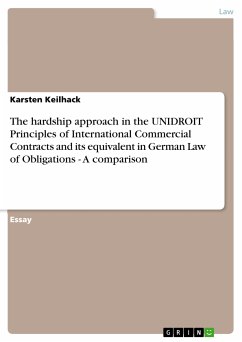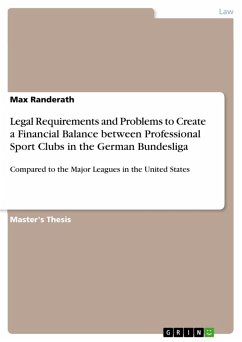Essay from the year 2003 in the subject Law - Comparative Legal Systems, Comparative Law, grade: 67%, Cardiff University (Großbritannien; Law School), course: Comparative Contract Law, language: English, abstract: The UNIDROIT Principles of International Commercial Contracts1 have been published in May 1994 by the Rome-based International Institute for the Unification of Private Law (UNIDROIT), an intergovernmental organisation established in 1926. The Working Group on the UNIDROIT Principles was found in 1980 and consisted of independent legal scholars of all major legal systems of the world. The UNIDROIT Principles are not binding law. Most legal writers agree that they can be characterised as a restatement of the law of international commercial contracts2 and despite the controversial issue about the very existence, scope and content of a lex mercatoria - the possibility of applying supranational law to international legal relationships- most authors agree that it exists and that the UNIDROIT Principles are a significant part of it3. The object of this paper is to examine the UNIDROIT Principles' approach to hardship laid down in Chapter 6, Section 2 and to compare it with its equivalent provision in the German Civil Code (Bürgerliches Gesetzbuch, hereinafter BGB), § 3134. For this purpose it is firstly necessary to define the term "hardship". Thereafter I will consider the respective provisions in detail and highlight differences and similarities.
Dieser Download kann aus rechtlichen Gründen nur mit Rechnungsadresse in A, B, BG, CY, CZ, D, DK, EW, E, FIN, F, GR, HR, H, IRL, I, LT, L, LR, M, NL, PL, P, R, S, SLO, SK ausgeliefert werden.









